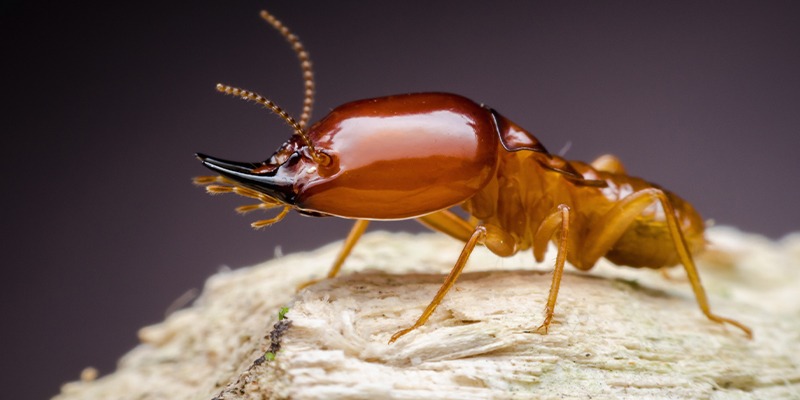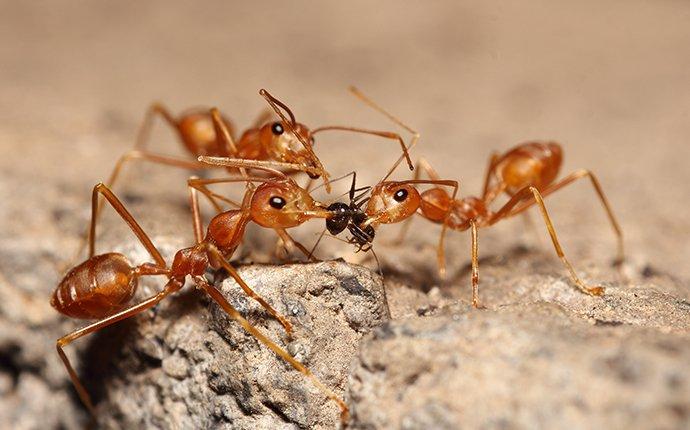Environmental Impact of Insect Control: Harmonizing Effectiveness With Sustainability
The environmental influence of bug control is a vital issue that needs a delicate balance in between attaining performance in ensuring and handling parasites sustainability of our environments. As we make every effort to safeguard our crops, homes, and health and wellness from the dangers postured by insects, the approaches we use can accidentally damage the atmosphere. From using damaging chemicals that leak right into our dirt and water to the unplanned repercussions on non-target varieties, the effects of traditional pest control methods are significant. Nevertheless, there are arising approaches that supply wish for an extra sustainable approach to pest monitoring. These remedies not just objective to deal with the prompt parasite issues yet also consider the long-term health of our earth.
Harmful Chemicals in Parasite Control
The utilization of dangerous chemicals in parasite control positions substantial ecological and health and wellness risks that necessitate mindful consideration and mitigation methods. Insecticides, herbicides, and chemicals are generally utilized to get rid of pests, but their prevalent application can bring about unintentional consequences. These chemicals can infect soil, water sources, and the air, influencing not only the targeted bugs yet additionally beneficial bugs, wild animals, and human beings.

To deal with these risks, incorporated parasite monitoring (IPM) methods are being advertised as an extra sustainable choice. IPM entails a mix of methods such as biological control, habitat manipulation, and the targeted use of chemicals as a last resource (ant control garner nc). By adopting a holistic approach to pest control, we can lessen the environmental and health impacts connected with dangerous chemicals while effectively taking care of pest populaces
Effect On Non-Target Species
Thinking about the unexpected repercussions of bug control techniques, the effect on non-target varieties is a crucial facet that requires thorough evaluation. While bug control steps aim to target particular insects, other organisms in the ecological community might be accidentally influenced. Non-target types, including valuable insects, birds, creatures, and even plants, can experience direct or indirect injury from chemical applications or organic control techniques.
Pesticides can have sub-lethal or lethal impacts on non-target varieties. Pesticides created to combat a specific insect bug might harm pollinators like bees or all-natural predators such as ladybugs. Additionally, chemical residues can accumulate in the setting, impacting non-target organisms gradually. Organic control agents, if not species-specific, can posture threats to unexpected targets, disrupting the ecological equilibrium.
To reduce the influence on non-target types, integrated bug monitoring (IPM) techniques that stress an all natural approach to pest control are advised. explanation These approaches focus on making use of eco pleasant techniques, lessening injury to helpful microorganisms while efficiently handling pest populaces. Performing thorough threat analyses and monitoring the end results of parasite control initiatives are important action in securing non-target types and advertising total community wellness.
Dirt and Water Contamination
Unintended ecological effects of bug control techniques expand beyond affecting non-target species, with significant implications for soil and water contamination - termite control services. Chemicals, herbicides, and chemical fertilizers made use of in parasite control can seep right into the soil and contaminate groundwater, presenting a hazard to both terrestrial and aquatic communities.
Water contamination is an additional essential concern associated with parasite control methods. Drainage from farming areas treated with chemicals can carry these chemicals right into nearby water bodies, influencing water microorganisms and water top quality. Contaminants in water sources can have significant repercussions, influencing not only water life yet also human health and wellness via the intake of infected water or marine microorganisms. To reduce soil and water contamination from bug control tasks, incorporated parasite administration strategies that prioritize sustainability and decrease chemical inputs are vital.
Air Pollution From Pesticide Usage
Direct exposure to air-borne chemicals throughout agricultural applications poses a substantial issue for air pollution control actions. They can volatilize into the air and form unpredictable organic compounds (VOCs) and other air-borne contaminants when pesticides are sprayed onto crops - ant control services. These chemicals can add to the development of ground-level ozone, a significant component of smoke that can have destructive results on human health, crop performance, and general air quality. In addition, chemical drift, where chemicals are carried by the wind to unintentional locations, can bring about the contamination of nearby ecosystems and water bodies.

Approaches for Lasting Pest Control
In the realm of farming methods, implementing lasting insect control approaches is critical for maintaining eco-friendly equilibrium and protecting plant returns. Lasting pest control stresses using eco friendly methods to manage pest populations effectively while reducing harm to non-target organisms and communities. Integrated Insect Management (IPM) is an extensively taken on strategy that incorporates biological, social, physical, and chemical control techniques to attain long-lasting bug management services.
Plant rotation and diversity are additionally reliable strategies to disrupt pest life cycles and create much less positive problems for insects to grow. Ultimately, by incorporating these lasting pest control methods, farmers can attain a balance in between pest management effectiveness and environmental stewardship.
Verdict
To conclude, the environmental influence of insect control techniques must be carefully taken into consideration to balance performance with sustainability. Damaging chemicals made use of in insect control can bring about soil and water contamination, air contamination, and damage non-target varieties - termite control services. It is critical to carry out sustainable parasite control approaches to lessen these unfavorable effects on the environment and promote a much healthier community for future generations
By embracing an alternative method to pest control, we can lessen the environmental and health influences associated with unsafe chemicals while efficiently taking care of pest populaces.

To reduce the air contamination triggered by pesticide usage, it is important to embrace incorporated pest management approaches that prioritize the usage of non-chemical parasite control techniques, such as crop turning, all-natural predators, and resistant plant ranges. Lasting parasite control stresses the usage of eco pleasant approaches to handle pest populaces successfully while minimizing injury to non-target microorganisms and ecological communities. Integrated Pest Monitoring (IPM) is a widely taken on technique that incorporates organic, social, physical, and chemical control methods to achieve long-term parasite administration options.